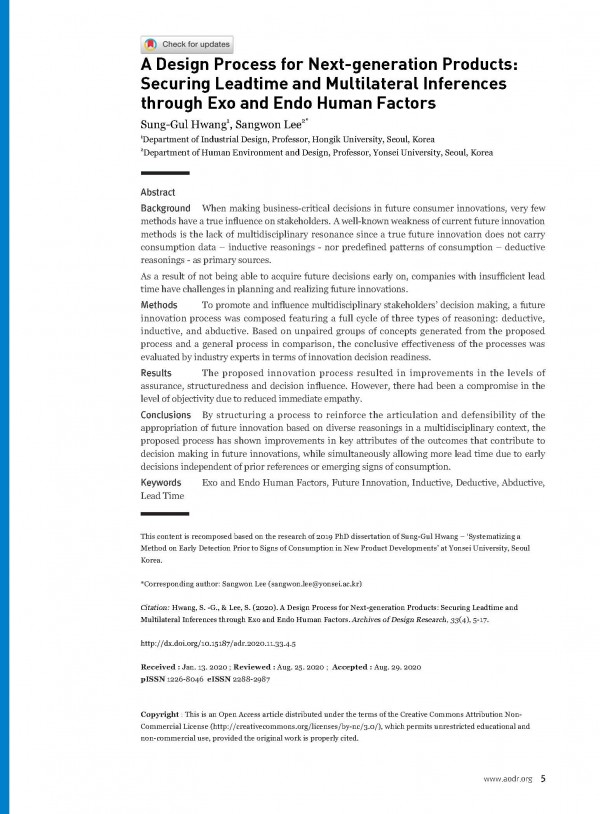논문 | A Design Process for Next-generation Products: Securing Leadtime and M…
페이지 정보
작성자 관리자 작성일21-03-31 14:09 조회693회 댓글0건관련링크
본문
Sung-Gul Hwang, & Sangwon Lee. (2020). A Design Process for Next-generation Products: Securing Leadtime and Multilateral Inferences through Exo and Endo Human Factors. Archives of Design Research, 33(4), 5-17.
DOI: http://dx.doi.org/10.15187/adr.2020.11.33.4.5
ABSTRACT
Background
When making business-critical decisions in future consumer innovations, very few methods have a true influence on stakeholders. A well-known weakness of current future innovation methods is the lack of multidisciplinary resonance since a true future innovation do
es not carry consumption data – inductive reasonings - nor predefined patterns of consumption – deductive reasonings - as primary sources. As a result of not being able to acquire future decisions early on, companies with insufficient lead time have challenges in planning and realizing future innovations.
Methods
To promote and influence multidisciplinary stakeholders’ decision making, a future innovation process was composed featuring a full cycle of three types of reasoning: deductive, inductive, and abductive. Based on unpaired groups of concepts generated from the proposed process and a general process in comparison, the conclusive effectiveness of the processes was evaluated by industry experts in terms of innovation decision readiness.
Results
The proposed innovation process resulted in improvements in the levels of assurance, structuredness and decision influence. However, there had been a compromise in the level of objectivity due to reduced immediate empathy.
Conclusions
By structuring a process to reinforce the articulation and defensibility of the appropriation of future innovation based on diverse reasonings in a multidisciplinary context, the proposed process has shown improvements in key attributes of the outcomes that contribute to decision making in future innovations, while simultaneously allowing more lead time due to early decisions independent of prior references or emerging signs of consumption.
